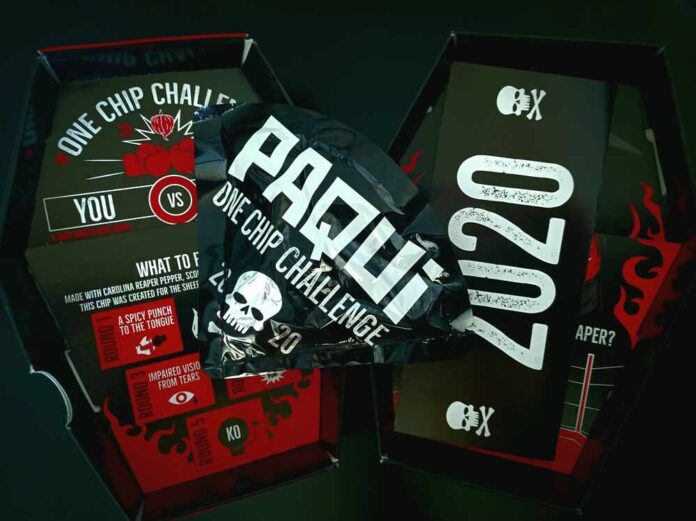
The viral sensation known as the “One Chip Challenge” has sparked a heated debate after a Worcester, Massachusetts, family alleged their 14-year-old son, Harris Wolobah, died from complications related to consuming the intensely spicy tortilla chip. Even with warnings from the manufacturer, the fervor on social media is leading many to question how responsible schools are and whether the product should be pulled from shelves.
Manufactured by Paqui, the One Chip Challenge dares participants to consume a tortilla chip laced with “Carolina Reaper” and “Naga Viper Pepper,” known for their searing heat. According to the company’s website, the chip is “intended for adult consumption,” with disclaimers like “keep out of reach from children” and advising consumers to seek medical help for “trouble breathing, fainting or prolonged nausea.”
Massachusetts teen dies after taking part in social media’s spicy ‘One Chip Challenge’ https://t.co/8CdXs0rJwz pic.twitter.com/9MIMYqKY4V
— New York Post (@nypost) September 5, 2023
Despite these warnings, Harris Wolobah, a Doherty Memorial High School sophomore, accepted a chip from a classmate during school hours. After feeling unwell, he was sent home from the school nurse’s office, only to pass out in the late afternoon and later be pronounced dead at the hospital. An official cause of death is pending.
Harris’s mother, Lois Wolobah, regrets that her son was not sent directly to the hospital. “He felt better after they went home, but at 4:30 p.m., when he was about to leave for basketball tryouts, his brother yelled that he’d passed out,” she said. “Harris was taken to a nearby hospital where he was pronounced dead.”
It’s fair to ask: Could the school have prevented this tragedy with better vigilance? The school district has yet to comment on why Harris was sent home rather than to the hospital. Superintendent Rachel Monárrez expressed her condolences: “It is with a heavy heart I share that we lost a rising star.”
The incident has left parents questioning the safety of viral challenges and schools’ ability to handle such situations effectively. Last year, some California schools issued warnings about the One Chip Challenge, stating students had to be sent home. Yet, here we are, questioning the boundaries of what should be allowed in educational settings and how much responsibility schools have in preventing tragedies stemming from viral internet challenges.
Moreover, as consumers and parents, we must scrutinize our collective eagerness to partake in or share these hazardous challenges that tempt fate for likes and views on platforms like TikTok and X, formerly known as Twitter. The thrill-seeking culture amplified by social media may give us momentary chuckles, but is it worth the steep cost of life?
Paqui told the TODAY show last year that it takes “safety very seriously” and intends that “consumers take on this challenge with a full understanding of what it is.” However, given this recent heartbreaking incident, a review of their product’s availability to minors is imperative.
As the investigation continues and the community mourns the loss of a young life full of promise, we should ponder the role schools, companies, and social media platforms play in preventing such needless tragedies. At the very least, Harris Wolobah’s tragic demise serves as a cautionary tale for parents and educators, urging us to exercise due diligence and offer guidance in navigating the risky landscape of viral internet challenges.

































